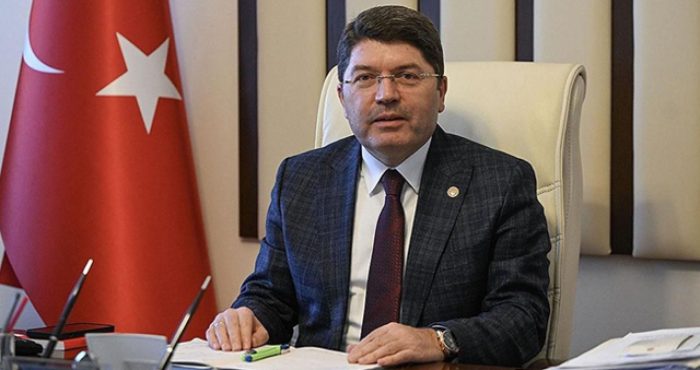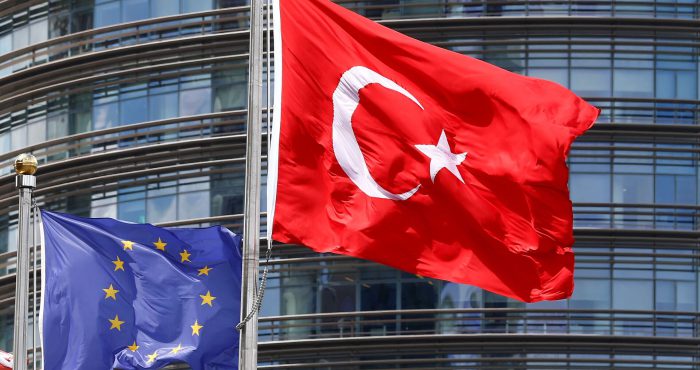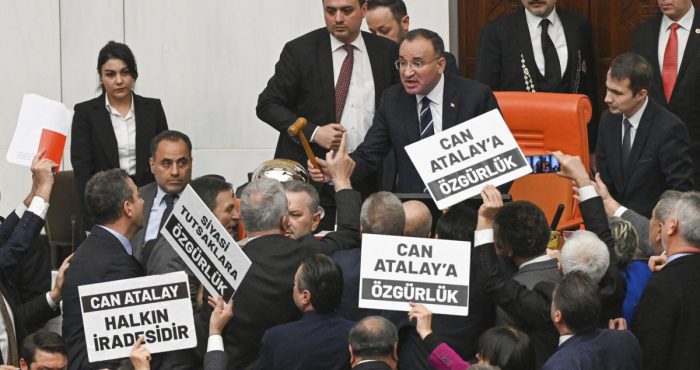On 6 February 2023, the continent of Africa, which has been blatantly sneaking under our Anatolia for years in collaboration with the freezing cold and snowstorm coming from Siberia, hit our country with earthquakes of 7.7 magnitude in Pazarcık, followed by 7.6 magnitude in Elbistan and more than 180 aftershocks. The earthquake hit in the night, an hour or two before dawn, when everyone was sound asleep, striking thousands of innocent people sleeping in buildings of at least five stories, 10 to 20 apartments each.
We are experiencing once again one of the biggest disasters in our history.
While, on the one hand, TVs show officials and volunteers trying to save lives from collapsed buildings, on the other hand, social media and alternative communication channels are full of cries for help. The desperate struggles of people searching for their mothers and fathers under the rubble, desperately trying to reach their children, friends and loved ones, the despairing and hopeless efforts of people trying to save those they can reach, the silent cries and the efforts of those who can get out to survive in the freezing cold are heartbreaking.
I am sorry for Turkey’s loss.
The first 72 hours
From the moment the news of the earthquake was first reported in the middle of the night, officials, humanitarians and non-governmental organizations have been working hard to save the lives that can be saved in the first 72 hours after the earthquake and to help the people in the region to continue their lives. Many left their warm beds and rushed to help, collecting whatever food, clothing, blankets and cash aid they could.
In response to our call for international help, all states and their volunteers, those we consider friends, enemies or rivals, immediately mobilized to help. Hundreds of planeloads of aid volunteers are reaching our country in the fastest way possible.
When you see the pictures of volunteers waiting at airports to go to the earthquake zone, of officials rushing a small baby out of the rubble to an ambulance, of a grandmother crouching in the rubble of a completely collapsed apartment building lamenting for the lives of those who could not have survived, of a mother asking for help from inside a ruin, giving the address of the building she is trapped under on her cell phone, and of her small children hiding behind her, you cry out in sadness, anger and helplessness.
Organization and management
Tens of thousands of helpless victims on the one hand, and tens of thousands of people trying to help others they don’t even know on the other …
We are crying out for help for the victimized and helpless, but we don’t know who, where and in what situation they are, nor do we know who can help whom, where and how. On the one hand, those waiting for help give the addresses of collapsed buildings and ask for heavy equipment to be sent to dig out the survivors underneath. A mother whose children are crying in hunger pleads for “bread, water and blankets, for God’s sake.”
On the other hand, the charities want to send construction equipment, blankets, bread and water.
There are those in need and those who want to meet this need. But it is not clear who needs what, how the aid can be delivered and how it should be distributed. Everyone who is in a position to help is trying to do something according to what they see and perceive. Some are sending blankets. Some people buy and distribute blankets for charity, others sell them for three to four times their normal value.
The state exists for this kind of task. The politicians who aspire to govern the state exist to fulfill this duty, and public officials, especially those tasked with managing emergencies, are recruited and paid for this kind of situation. State administrators exist to be prepared for such situations, to manage at times of catastrophe, to provide aid to those who need it and, if this is not enough, to deliver aid to citizens who are ready to heal the wounds.
Emergency management
We have experienced many similar disasters. After the Gölcük earthquake, we learned that when there is a big earthquake, there is widespread destruction and we need to focus on saving lives and meeting urgent life needs in the first 72 hours. We created an institution called AFAD, the Disaster and Emergency Management Presidency.
The first and most critical task for state authorities is to identify an urgent situation. The task of state authorities, who have airplanes, unmanned aerial vehicles (UAVs) and helicopters, and the taxes we pay in their vaults, is a heavy but important one. Our authorities should use the data they have on who lives at which address and scientific measurement methods to determine which cities, districts and towns have been worst hit; identify the items that may be needed; and declare the means at their disposal and how much is available. They must declare that this city needs this much construction equipment, this town needs this many blankets, this neighborhood needs this many search and rescue personnel, this much bread and this much water. If this is done effectively, aid workers can mobilize their resources to fill the gaps and get the aid to the those who need it in the shortest possible time.
Our authorities know as well as everyone else that the Turkish people are unparalleled in their benevolence. However, they need to learn how to deliver the aid of the benevolent people to those in need in a safe and reliable way. They should immediately establish collection and delivery centers and announce these to the people, where the aid collected by the people through self-organization can be received and delivered to the needy. The president, who has called for international help, should immediately issue a donation decree, specify the bank accounts where people can donate and announce to the public what in-kind aid is needed.
The time for accountability comes later
Of course, the idea of holding the authorities to account comes to the minds of almost everyone, especially those directly affected by the earthquake. Indeed, we see it on television and in the media: distinguished scientists have been warning the state and our authorities for years that an earthquake is imminent in this region, based on other recent quake activity in the area. There is no need to warn them anyway. The history of earthquakes shows that a major earthquake may occur in this region.
After the 1999 Gölcük earthquake, thanks to our earthquake awareness, we introduced a temporary earthquake tax that was later made permanent. We developed our legislation to make our buildings earthquake-resistant. We should have made our new buildings earthquake-resistant, strengthened the old ones, demolished those that could not be strengthened, prevented people from entering their homes as if they were entering a coffin alive. Then, when such an earthquake occurred, we should have been able to overcome it with minimal damage.
Didn’t we elect our state authorities, our MPs, our political party leaders to take care of our affairs? What have they done with our earthquake taxes to prevent the effects of the earthquake, to strengthen or demolish flimsy buildings? What right did they have to make zoning plans incompatible with the earthquake fault line, to fail to adequately inspect new constructions and to condemn people to a kind of living death with sick methods such as construction amnesty/zoning reconciliation?
How dare they say “we are victims”?
How prepared are they when an earthquake strikes? To what extent are they able to meet the needs of the people affected? How successful or unsuccessful are they in connecting those who want to help with those in need? Why is there rescue work in the building in that neighborhood but not in the building in this neighborhood? They may have limited resources, but on what basis and by whose decision did they choose the building they chose to help and not the others?
How dare the officials, whose salaries we pay with our taxes to be prepared for times such as these, make excuses like “we were also victims of the earthquake”? What right do they have to cause the silent ones on the sidelines to cry out “where is this state and its authorities”?
Thousands of questions like these and others come to mind, and people want to ask for accountability. But in these difficult days, it is better to leave this for later – provided that it is never forgotten. Once the pain subsides, the wounds are healed, the dead have been mourned, there is too often no desire to look back and ask for accountability. Those who need to be held accountable take precautions, and accountability becomes impossible. Still, until the early days after the tragedy have passed, until we have rescued the loved ones we can save, we must postpone accountability and devote everything we have to protecting the lives of the victims.




